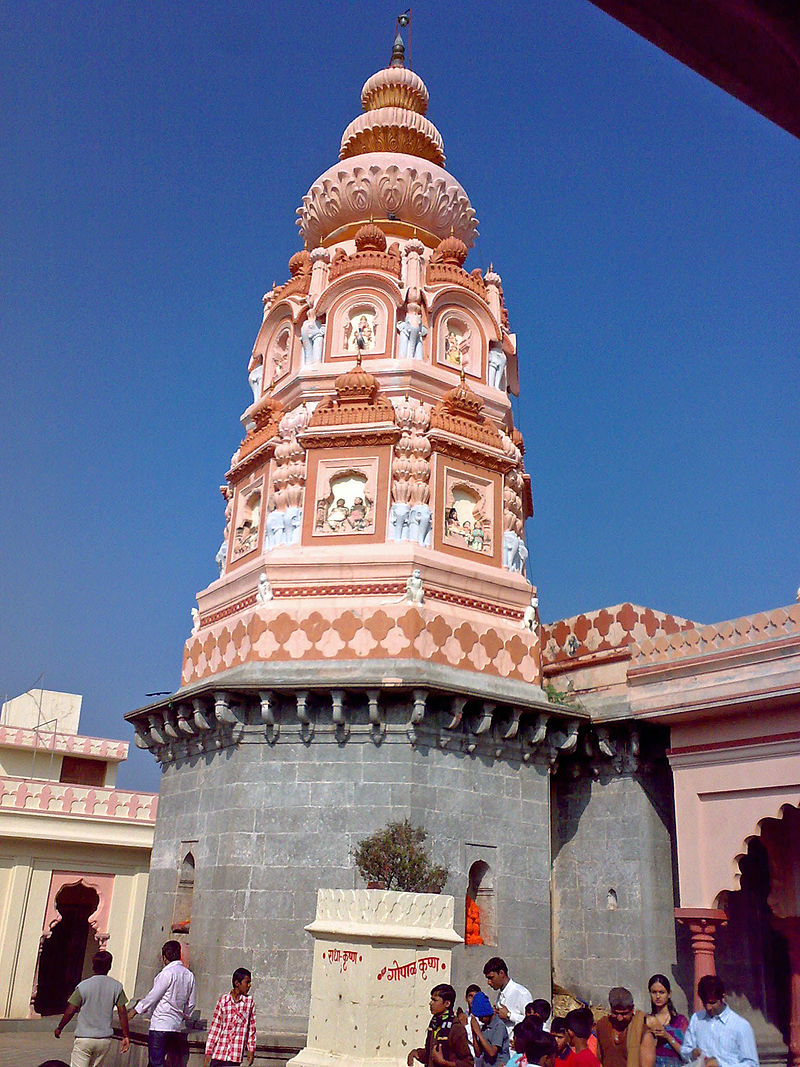Shri Mayureshwar Mandir


Shri Mayureshwar Mandir is a Hindu temple (mandir) dedicated to Ganesha, the elephant-headed god of wisdom. It is located in Morgaon (Marathi: मोरगाव) in Pune District, about 80 kilometres (50 mi) away from Pune city in the Indian state of Maharashtra. The temple is the starting and ending point of a pilgrimage of eight revered Ganesha temples called Ashtavinayaka.
Morgaon is the foremost centre of worship of the Ganapatya sect, which considers Ganesha as the Supreme Being. A Hindu legend relates the temple to killing of the demon Sindhu by Ganesha. The exact date of building of the temple is unknown, though the Ganapatya saint Morya Gosavi is known to be associated with it. The temple flourished due to the patronage of the Peshwa rulers and descendants of Morya Gosavi.
The Shri Mayureshwar Mandir is the starting point of the pilgrimage of eight revered temples of Ganesha, around Pune.The temple circuit is known as Ashtavinayak ("Eight Ganeshas"). The pilgrimage is considered incomplete if the pilgrim does not visit the Morgaon temple at the end of the pilgrimage. The Morgaon temple is not only the most important temple in the Ashtavinayak circuit, but also is described as "India's foremost Gaṇeśa (Ganesha) pilgrimage".
Shri Mayureshwar Mandir is the adhya pitha – foremost centre of worship of the Ganapatya sect, which considers Ganesha as the Supreme Being. It attracts the greatest number of pilgrims in the Ashtavinayak circuit. Both the primary scriptures of the Ganapatya sect praise Morgaon. While Mudgala Purana dedicates 22 chapters to Morgaon's greatness, Ganesha Purana states that Morgaon (Mayurapuri) is among the three most important places for Ganesha and the only one on earth (Bhuloka).
The other locations are Kailash in heaven (actually Kailash is a mountain on earth in the Himalayas, believed to have the abode of Ganesha's parents Shiva and Parvati) and Adi-Shesha's palace in Patala (underworld). According to a tradition, the temple is without beginning and without an end. Another tradition maintains that at the time of pralaya (the dissolution of the world), Ganesha will enter yoganidra here. Its holiness is compared with Kashi, the sacred Hindu city